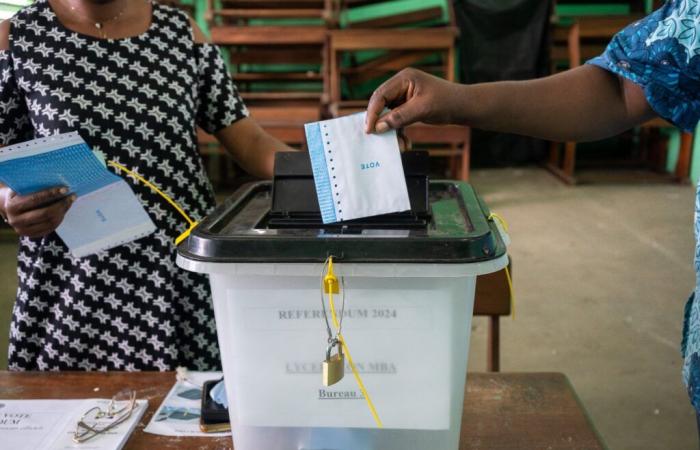The Constitutional Court in Gabon definitively validated on Friday the adoption of the new Constitution approved in mid-November by referendum, with 91.64% “yes”, announced its president, a key step in the return to power of civilians after the coup d'état of August 2023.
The final results proclaimed in a formal audience total fewer registrants (853,028 instead of 868,115), fewer voters (462,166 instead of 463,066) and fewer votes cast (416,382 instead of 454,173) than the provisional figures published by the ministry of the Interior, but the participation rate, a crucial issue in this consultation, is up slightly to 54.18% (53.54% previously).
“After examining the various results of all the commissions, the Court proclaims (that) the referendum of November 16, 2024 gave the following overall results: (…) votes obtained for + yes + 91.64%,” said Dieudonné Aba'a Owono, the president of the Constitutional Court.
This rate is slightly lower than the 91.80% announced by the Ministry of the Interior the day after the referendum.
The Constitution adopted, the next step is the revision of the electoral code with a view to holding a presidential election, scheduled for August 2025.
The day after the election, the president of the transition, General Brice Oligui Nguema, who came to power through a military putsch which ended 55 years of power of the Bongo family, welcomed a “historic step” in the transition process. .
The former head of the presidential guard has promised to return power to civilians but does not hide his presidential ambitions, also promising a “rise towards happiness” for this country which is both rich in oil and heavily in debt.
The 173 articles of the new fundamental law, the result of contributions collected in the spring during a national dialogue, establish, among other things, a seven-year mandate renewable only once, with a presidential regime endowed with strong executive power, without Prime Minister and the impossibility of a dynastic transmission of power.
His second article sets in stone the accession to power of the junta led by General Oligui on August 30, 2023, with the establishment of a “liberation celebration”.
Article 170 exempts from prosecution and conviction “the actors of the events from August 29, 2023 to the inauguration of the president of the transition”, on September 4.
Several provisions cannot be subject to any future revision. Among them, there is the limit of two successive presidential mandates, the method of election by direct universal suffrage or even marriage reserved for two individuals of opposite sexes.
TE/APA with AFP






